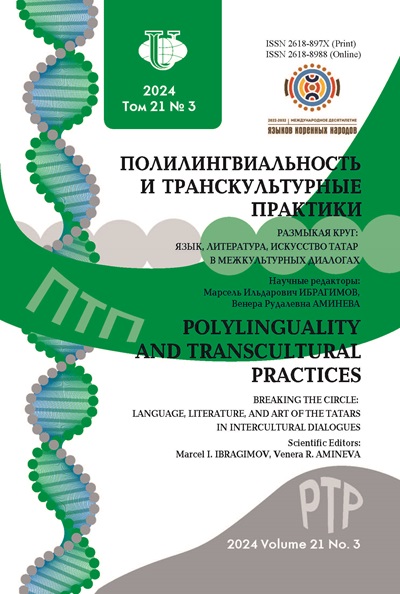Issue
Title
Authors
|
Kurguzenkova Z.V. |
|
Azimov E.G. |
|
Bogdanova K.A. |
|
Kuzhuget S.Y., Suvandii N.D., Lamazhaa C.K. |
|
Vladimirova T.E. |
|
Marusenko M.A. |
|
Al-Kaisi A.N., Koutsoni O.M., Rudenko-Morgun O.I. |
|
Sinyachkin V.P., Dvoryashina V.S. |
|
Nedopekina E.M. |
|
Borisova A.A. |
|
Akhnina K.V. |
|
Kaparushkina D.I. |
|
Bondareva O.V. |
|
Romanova N.N., Amelina I.O. |
|
Wenqian Zang -. |
|
Wenqian Zang -. |
|
Khamraeva E.A. |
|
Strelchuk E.N. |
|
Romanova N.N., Amelina I.O. |
|
Rudenko-Morgun O.I., Al-Kaisi A.N. |
|
Gartsov A.D. |
|
Abbasova A.A. |
|
Pomortseva N.V. |
|
Arzamazov A.A. |
|
Afanasieva N.D., Zakharchenko S.S., Mogileva I.B. |
|
Dzhusupov M. |
|
Fattakhova A.R. |
|
Lu You -. |
|
Valuitseva I.I., Khukhuni G.T. |
|
Baghana J. |
|
Mikheeva N.F. |
|
Chuvaeva K.M. |
|
Shatalova L.S., Shcherbakova O.M. |
|
Baghana J. |
|
Saranina I.I. |
|
Lukanina E.V. |
|
Banshchikova М.A. |
|
Balykhin M.G., Fedorenkov A.D. |
|
Motovilova G.G., Pushkova N.N., Sidelnikova A.V., Shustikova T.V. |
|
Voropayeva Y.A. |
|
Tanwar S., Mital R., Balykhina T.M., Perova T.E. |
|
Khegay V.K. |
|
Alexeeva I.S. |
|
Mishina N.Y., Antonov E.A. |
|
Smirnova A.I. |
|
Sycheva A.V. |
|
Bejenari O.A. |
|
Afanasieva N.D., Zakharchenko S.S., Mogileva I.B. |
|
Nikitsenka T.V. |
|
Sukhov N.V. |
|
Letunovsky D.V. |
|
Tumanova S.R. |
|
Krivchenkova I.V. |
|
Karapetjan N.G., Chernenko N.M. |
|
Orlova E.V. |
|
Langner A.N., Baghana J. |
|
Nedosugova A.B. |
|
Leifa I.I. |
|
Ndiaye M. |
|
Nazartseva E.A., Chauzova L.I. |
|
Рashkovskaya S.S. |
|
Vasilyeva V. |
|
Khukhuni G.T., Valuitseva I.I. |
|
Khukhuni G.T., Valuitseva I.I. |
|
Balasanyan L.G., Moskovkin L.V. |
|
Sebryuk A.N. |
|
Moissejenko I.М., Maltseva-Zamkovaja N.V., Tshuikina N.V. |
|
Alexandrova N.S. |
|
Baghana J. |
|
Nikolaenko S.V. |
|
Gatinskaya N.V. |
|
Sokolova L.I. |
|
Saranina I.I. |
|
Nizkoshapkina O.V. |
|
Saricheva E.A., Yakushev V.V. |
|
Alontseva N.V. |
|
Mekeko N.M. |
|
Skyaeva E.V., Karapetyan N.G. |
|
Fan Guodong -. |
|
Arkhangelskaya A.Z., Zhigunova O.M., Zhindaeva A.G. |
|
Jemeljanova J.V. |
|
Shoustikova T.V., Voronkova I.A., Shorkina E.N. |
|
Gagarina N.V. |
|
Bejenari O.A. |
|
Agmanova A.E., Tokatova L.E. |
|
Yalalov F.G. |
|
Kutsaeva M.V. |
|
Barov S.A., Yannitsi T. |
|
Lebedeva I.L. |
|
Fan D. |
|
Molchanova I.I. |
|
Kuvshinova E.A. |
|
Nevmerzhitskaya Y.P. |
|
Nedosugova A.B. |
|
Orlova E.V. |
|
Iakovleva S.A. |
|
Makhankova I.P., Novikova N.S., Serova L.K., Khvorikova E.G. |
|
Shevchenko A.V. |
|
Kraevskaya N.M. |
|
Kudoyarova T.V. |











